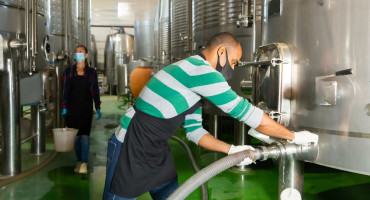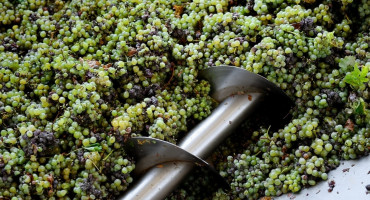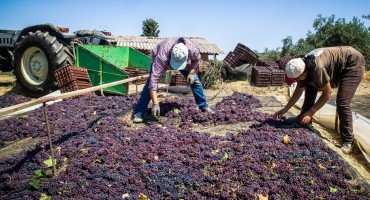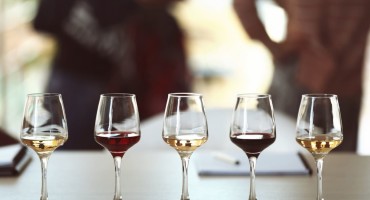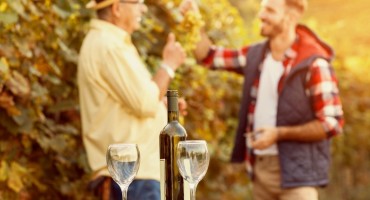Sustainable Winemaking Practices in the Hamptons
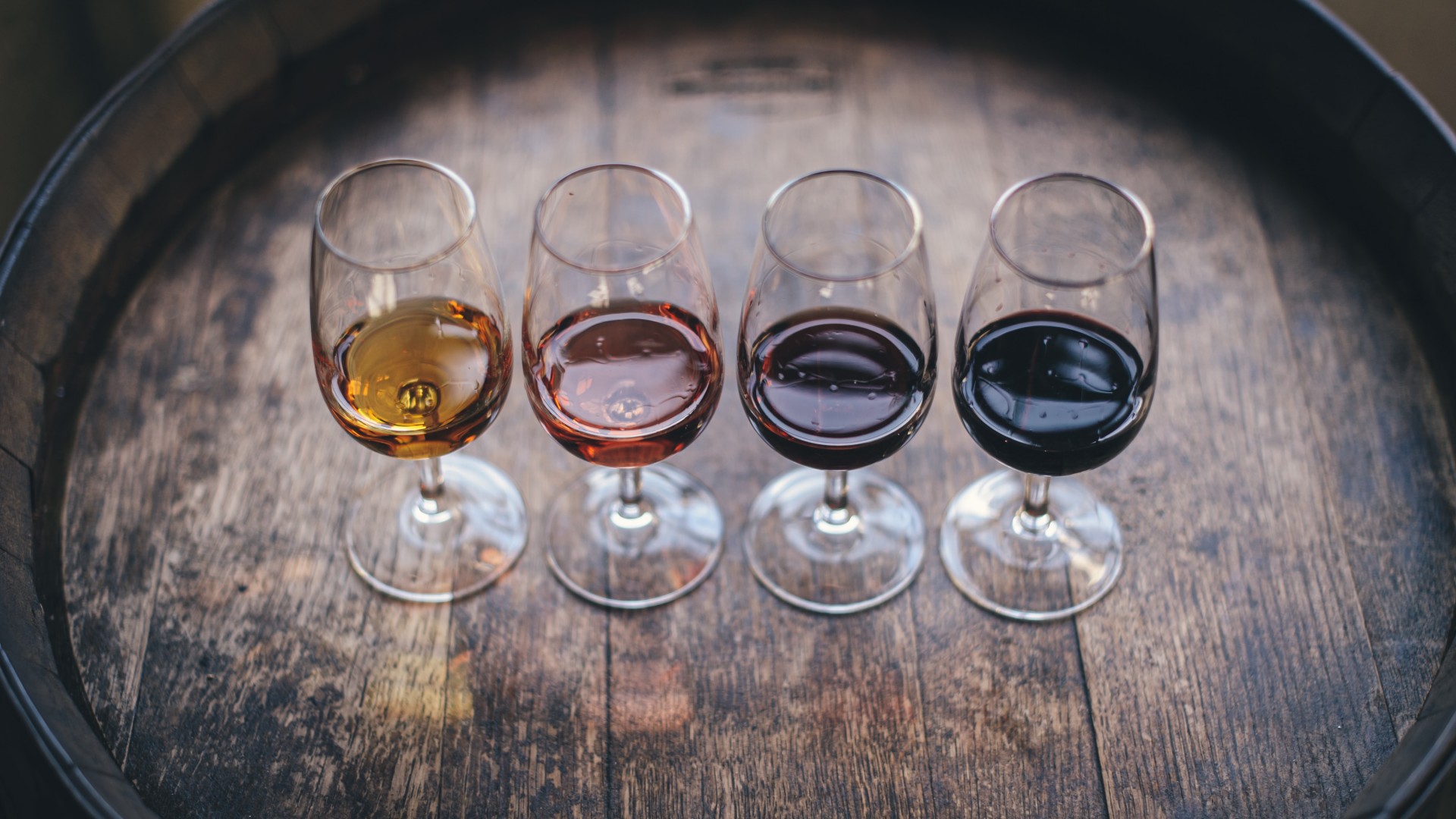
The Hamptons, a picturesque region on the eastern end of Long Island, New York, are not only known for their stunning landscapes and luxurious estates but also for their thriving wine culture. In recent years, the wine industry in the Hamptons has been embracing sustainable winemaking practices, demonstrating a commitment to excellence in both viticulture and environmental stewardship. This blog post is about the world of sustainable winemaking in the Hamptons, exploring how local vineyards are harmonizing winemaking with a profound respect for nature.
Understanding Sustainable Winemaking
Sustainable winemaking is a holistic approach that aims to minimize negative impacts on the environment, support local communities, and ensure economic viability without compromising the quality of the final product. It encompasses every aspect of the winemaking process, from grape cultivation in the vineyards to the bottling and distribution of the wine. The key pillars of sustainable winemaking are:
- Sustainable Vineyard Management
At the heart of sustainable winemaking lies sustainable vineyard management. Winemakers in the Hamptons are adopting practices that reduce chemical inputs, promote biodiversity, and protect natural resources. They prioritize soil health by implementing cover cropping, composting, and reduced tillage, which not only enhance grape quality but also minimize soil erosion and promote water retention.
- Water Conservation
Water scarcity is a growing concern globally, and the Hamptons are no exception. Sustainable wineries are implementing water-efficient irrigation systems, such as drip irrigation, to optimize water usage and ensure the vines receive adequate hydration without waste. Furthermore, rainwater harvesting and storage facilities are being utilized to supplement water needs during dry periods, reducing reliance on local water sources.
- Renewable Energy Adoption
Embracing renewable energy sources is a cornerstone of sustainable winemaking. Solar panels are increasingly gracing the rooftops of Hampton's wineries, harnessing the abundant sunlight to generate clean energy and reduce greenhouse gas emissions. By transitioning to renewable energy, winemakers not only mitigate their carbon footprint but also achieve long-term cost savings.
- Integrated Pest Management (IPM)
Sustainable winemakers in the Hamptons are adopting IPM practices, which involve the strategic use of natural pest control methods, such as beneficial insects and pheromone traps, to manage pests effectively. This approach minimizes the reliance on chemical pesticides, safeguarding the health of vineyard workers, consumers, and the environment.
- Eco-Friendly Packaging and Distribution
To further their commitment to sustainability, Hampton's wineries are exploring eco-friendly packaging options, such as lightweight glass bottles and recycled materials, to reduce waste and lower transportation-related emissions. Additionally, some wineries are collaborating with local distribution partners to shorten supply chains, supporting the community and reducing the carbon footprint associated with long-haul shipping.
Sustainable Vineyard Certification Program
In April 2012, local vineyards united to create the Long Island Sustainable Winegrowing (LISW) initiative, a non-profit organization committed to providing educational programs and specialized certification for vineyards in the Long Island region. Collaborating with the Cornell University Cooperative Extension, LISW crafted its sustainable vineyard certification program, drawing inspiration from Cornell's Vine Balance certification.
Richard Olsen-Harbich, the Winemaker at Bedell Cellars in Cutchogue and spokesperson for LISW extended his appreciation for the invaluable contributions of Alice Wise and Libby Tarleton from Cornell. They played a pivotal role in customizing the Vine Balance standards to harmonize with the distinctive maritime climate of Long Island.
Apart from the original founding members, which include Bedell Cellars, Channing Daughters Winery, Martha Clara Vineyards, and Shinn Estate Vineyards, ten additional vineyards have also become part of the group Long Island vineyards.
These new additions comprise Lieb Cellars, Harbes Family Vineyard, One Woman Wines & Vineyards, Peconic Bay Winery, and Wolffer Estate Vineyard. Furthermore, they were expecting more vineyards to become members in 2013. While numerous other vineyards in the area are adopting sustainable wine growing and organic practices to some extent, not all of them have committed to pursuing viticultural practices
Biodynamic Winemaking: Nurturing Harmony with Nature
Biodynamic winemaking, an advanced form of sustainable viticulture, goes beyond simply avoiding harmful chemicals. This method views the vineyard as a living, interconnected ecosystem and aims to achieve harmony between the soil, plants, animals, and cosmic influences.
Based on the principles outlined by Rudolf Steiner in the 1920s, biodynamic winemaking incorporates lunar and celestial rhythms, herbal preparations, and composting to enrich the soil and enhance the vitality of the vines. Winemakers in the Hamptons who practice biodynamics often note improvements in soil structure, biodiversity, and overall grape health.
Moreover, biodynamic winemakers emphasize biodiversity within the vineyard, promoting the growth of diverse plant species and nurturing a habitat that attracts beneficial insects and wildlife. This approach results in healthier vineyard ecosystems and supports the preservation of local biodiversity.
Organic Winemaking: Nurturing Purity in Every Sip
Organic winemaking, another prominent approach to sustainable viticulture, entails growing grapes without synthetic chemical inputs, such as pesticides, herbicides, and synthetic fertilizers. Organic wineries in the Hamptons are certified by regulatory bodies that ensure compliance with strict organic standards.
By eliminating synthetic chemicals, organic winemakers prioritize the health of their consumers and the environment. The absence of chemical residues in the wine ensures a pure and natural product that resonates with health-conscious consumers.
Community Engagement and Social Responsibility
Sustainable winemaking in the Hamptons goes beyond environmental considerations; it also involves community engagement and social responsibility. Local wineries often actively support their communities by participating in charitable events, sourcing materials from local suppliers, and offering job opportunities to residents.
In addition, some wineries embrace fair labor practices, ensuring the well-being of their vineyard workers and supporting their personal growth and development. By fostering strong ties with the community, sustainable wineries contribute to the region's overall social and economic prosperity.
The Business Case for Sustainable Winemaking
Beyond environmental and social benefits, sustainable winemaking also makes good business sense. As consumer awareness of environmental issues grows, the demand for sustainable and eco-friendly products, including wine, continues to rise. Wineries that embrace sustainability not only position themselves as responsible corporate citizens but also tap into a growing market segment of eco-conscious consumers.
Moreover, sustainable practices often lead to operational efficiencies, cost savings, and improved resource management. For instance, energy-efficient wineries can significantly reduce their electricity bills, while water-efficient irrigation systems can help mitigate the impact of droughts on grape yields.
The Hamptons' Pathway to Sustainable Winemaking Brilliance
The Hamptons' journey toward sustainable winemaking is a testament to the region's commitment to preserving its natural beauty and resources. By adopting eco-friendly vineyard management, embracing renewable energy, and prioritizing biodiversity, winemakers in the Hamptons are proving that sustainable practices can yield exceptional wines while safeguarding the environment for future generations.
Through biodynamic and organic approaches, winemakers nurture their vineyards in harmony with nature, fostering a deeper connection between the land, the vines, and the final product. Additionally, their commitment to community engagement and social responsibility contributes to the overall well-being of the region.
As the sustainable winemaking movement gains momentum, the Hamptons serve as a shining example of how tradition and innovation can intersect to create a prosperous and environmentally responsible wine industry. By raising a glass of sustainable Hamptons wine, consumers not only savor the flavor of excellence but also become stewards of a greener and more sustainable future.
Experience the beauty of winemaking in the Hamptons through Long Island wine tours. When you visit these vineyards, you'll witness firsthand the commitment to environmentally friendly practices, from organic farming methods to renewable energy use. Embark on a memorable journey, tasting exquisite wines while learning about the region's dedication to sustainable viticulture. Long Island wine tours offer a unique opportunity to indulge in the flavors of the Hamptons while supporting eco-conscious wineries.
